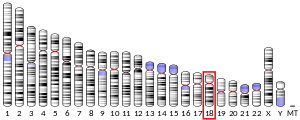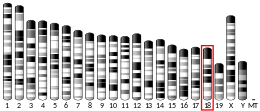| SLC14A2 | |||||||||||||||||||||||||||||||||||||||||||||||||||
|---|---|---|---|---|---|---|---|---|---|---|---|---|---|---|---|---|---|---|---|---|---|---|---|---|---|---|---|---|---|---|---|---|---|---|---|---|---|---|---|---|---|---|---|---|---|---|---|---|---|---|---|
| Identifiers | |||||||||||||||||||||||||||||||||||||||||||||||||||
| Aliases | SLC14A2, HUT2, UT-A2, UT2, UTA, UTR, hUT-A6, solute carrier family 14 member 2 | ||||||||||||||||||||||||||||||||||||||||||||||||||
| External IDs | OMIM: 601611; MGI: 1351653; HomoloGene: 5183; GeneCards: SLC14A2; OMA:SLC14A2 - orthologs | ||||||||||||||||||||||||||||||||||||||||||||||||||
| |||||||||||||||||||||||||||||||||||||||||||||||||||
| |||||||||||||||||||||||||||||||||||||||||||||||||||
| |||||||||||||||||||||||||||||||||||||||||||||||||||
| |||||||||||||||||||||||||||||||||||||||||||||||||||
| |||||||||||||||||||||||||||||||||||||||||||||||||||
| Wikidata | |||||||||||||||||||||||||||||||||||||||||||||||||||
| |||||||||||||||||||||||||||||||||||||||||||||||||||
Urea transporter 2 is a protein that in humans is encoded by the SLC14A2 gene.
Function
In mammalian cells, urea is the chief end-product of nitrogen catabolism and plays an important role in the urinary concentration mechanism. Thus, the plasma membrane of erythrocytes and some renal epithelial cells exhibit an elevated urea permeability that is mediated by highly selective urea transporters. In mammals, two urea transporters have been identified: the renal tubular urea transporter, UT2 (UT-A), and the erythrocyte urea transporter, UT11 (also called UT-B, coded for by the SLC14A1 gene). SLC14A2 and SLC14A1 constitute solute carrier family 14.
References
- ^ GRCh38: Ensembl release 89: ENSG00000132874 – Ensembl, May 2017
- ^ GRCm38: Ensembl release 89: ENSMUSG00000024552 – Ensembl, May 2017
- "Human PubMed Reference:". National Center for Biotechnology Information, U.S. National Library of Medicine.
- "Mouse PubMed Reference:". National Center for Biotechnology Information, U.S. National Library of Medicine.
- Olives B, Martial S, Mattei MG, Matassi G, Rousselet G, Ripoche P, Cartron JP, Bailly P (Jul 1996). "Molecular characterization of a new urea transporter in the human kidney" (PDF). FEBS Lett. 386 (2–3): 156–60. doi:10.1016/0014-5793(96)00425-5. PMID 8647271. S2CID 13312002.
- ^ "Entrez Gene: SLC14A2 solute carrier family 14 (urea transporter), member 2".
Further reading
- Smith CP, Fenton RA (2007). "Genomic organization of the mammalian SLC14a2 urea transporter genes". J. Membr. Biol. 212 (2): 109–17. doi:10.1007/s00232-006-0870-z. PMID 17264986. S2CID 12514783.
- Olives B, Neau P, Bailly P, et al. (1995). "Cloning and functional expression of a urea transporter from human bone marrow cells". J. Biol. Chem. 269 (50): 31649–52. doi:10.1016/S0021-9258(18)31744-7. PMID 7989337.
- Bradford AD, Terris JM, Ecelbarger CA, et al. (2001). "97- and 117-kDa forms of collecting duct urea transporter UT-A1 are due to different states of glycosylation". Am. J. Physiol. Renal Physiol. 281 (1): F133–43. doi:10.1152/ajprenal.2001.281.1.F133. PMID 11399654. S2CID 393209.
- Bagnasco SM, Peng T, Janech MG, et al. (2001). "Cloning and characterization of the human urea transporter UT-A1 and mapping of the human Slc14a2 gene". Am. J. Physiol. Renal Physiol. 281 (3): F400–6. doi:10.1152/ajprenal.2001.281.3.F400. PMID 11502588. S2CID 17458312.
- Strausberg RL, Feingold EA, Grouse LH, et al. (2003). "Generation and initial analysis of more than 15,000 full-length human and mouse cDNA sequences". Proc. Natl. Acad. Sci. U.S.A. 99 (26): 16899–903. Bibcode:2002PNAS...9916899M. doi:10.1073/pnas.242603899. PMC 139241. PMID 12477932.
- Jung JY, Madsen KM, Han KH, et al. (2003). "Expression of urea transporters in potassium-depleted mouse kidney". Am. J. Physiol. Renal Physiol. 285 (6): F1210–24. doi:10.1152/ajprenal.00111.2003. PMID 12952854.
- Smith CP, Potter EA, Fenton RA, Stewart GS (2004). "Characterization of a human colonic cDNA encoding a structurally novel urea transporter, hUT-A6". Am. J. Physiol., Cell Physiol. 287 (4): C1087–93. doi:10.1152/ajpcell.00363.2003. PMID 15189812. S2CID 26010752.
- Damiano AE, Zotta E, Ibarra C (2006). "Functional and molecular expression of AQP9 channel and UT-A transporter in normal and preeclamptic human placentas". Placenta. 27 (11–12): 1073–81. doi:10.1016/j.placenta.2005.11.014. PMID 16480766.
- Hong X, Xing H, Yu Y, et al. (2007). "Genetic polymorphisms of the urea transporter gene are associated with antihypertensive response to nifedipine GITS". Methods and Findings in Experimental and Clinical Pharmacology. 29 (1): 3–10. doi:10.1358/mf.2007.29.1.1063490. PMID 17344938.
This article incorporates text from the United States National Library of Medicine, which is in the public domain.
This membrane protein–related article is a stub. You can help Misplaced Pages by expanding it. |





